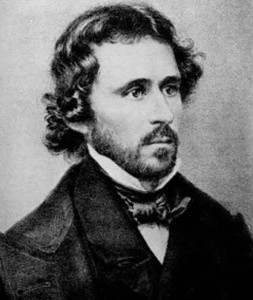The Naming of Fremont Township
The Naming of Fremont Township
By Diana Dretske
Lake County Discovery Museum
In 1850, when the township form of government was adopted in Lake County, each township set about selecting a name. In the township that would become Fremont, located between Libertyville and Wauconda, the names initially suggested were Hale, Gilmer, Fort Hill, Seneca, Haddam and Tickleville.
On January 12, 1850 these names were put to a vote. Fifty-five votes were cast with the majority going to Gilmer and then to Haddam; Tickleville received two votes. The result of the election was submitted to the Lake County Commissioners, but the petitioners stated that they preferred Haddam. It was Christopher Seeber, one of the election judges and a man from the township in question, who pointed out that Gilmer had in fact received more votes.
Seeber wrote: “An attempt was made early in the day of election to unite on a name, but it was soon found to be impossible.” He also advised that if Gilmer or Haddam was chosen “a majority of our voters will be dissatisfied.” So, Seeber put forth the name of Herkimer, stating, “[I] bed you to take it under your most serious advisement.”
Individuals representing the names of Gilmer and Haddam appeared before the commissioners and made arguments for each name. Gilmer was in honor of Thomas Gilmer, the secretary of the Navy under President Tyler, who was killed by the bursting of a gun on board the U.S. steamer Princeton in 1844. Haddam was in honor of the place of origin of many of the township’s settlers who were from Haddam, Connecticut.
The commissioners were unable to decide between the two names, and agreed with Seeber that to choose either name would make any number of people unhappy. Someone present then suggested the name of Fremont.
At the time, John Frémont (1813-1890) was very much on everyone’s mind. He was known as the “Pathfinder” and the great explorer of the American West. He had surveyed the Des Moines River, mapped most of the Oregon Trail and explored the Great Basin in the Pacific coast. His written and published accounts of his expeditions became wildly popular with the public who knew little of the great wilderness west of the Mississippi River; most of which did not yet belong to the United States.
Hence the name of Fremont was considered a good choice and an acceptable compromise, and was promptly adopted.
(Article originally published in the Daily Herald, March 17, 2002).

